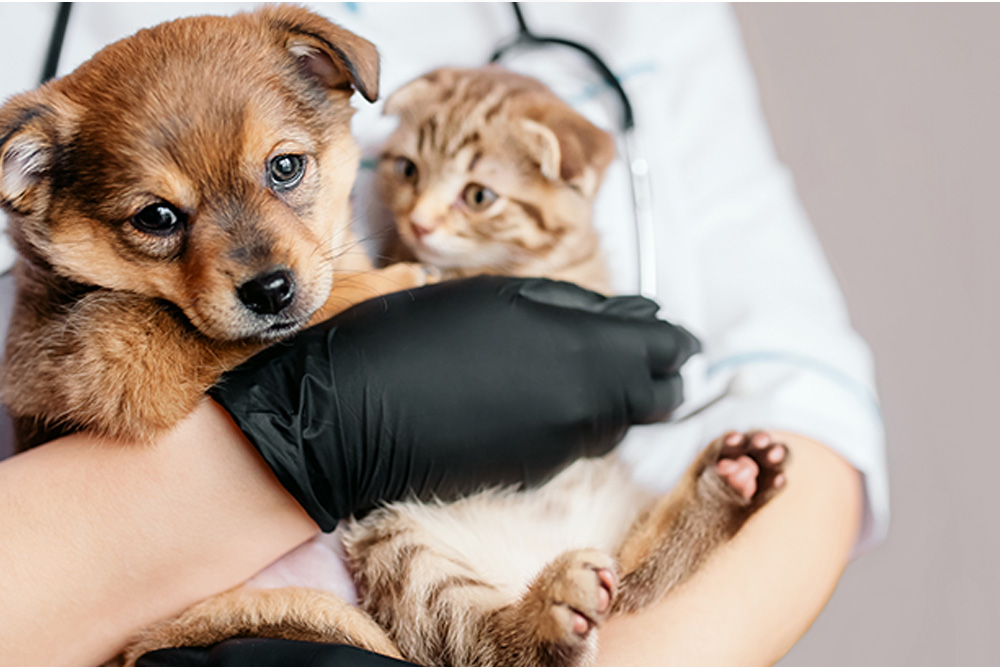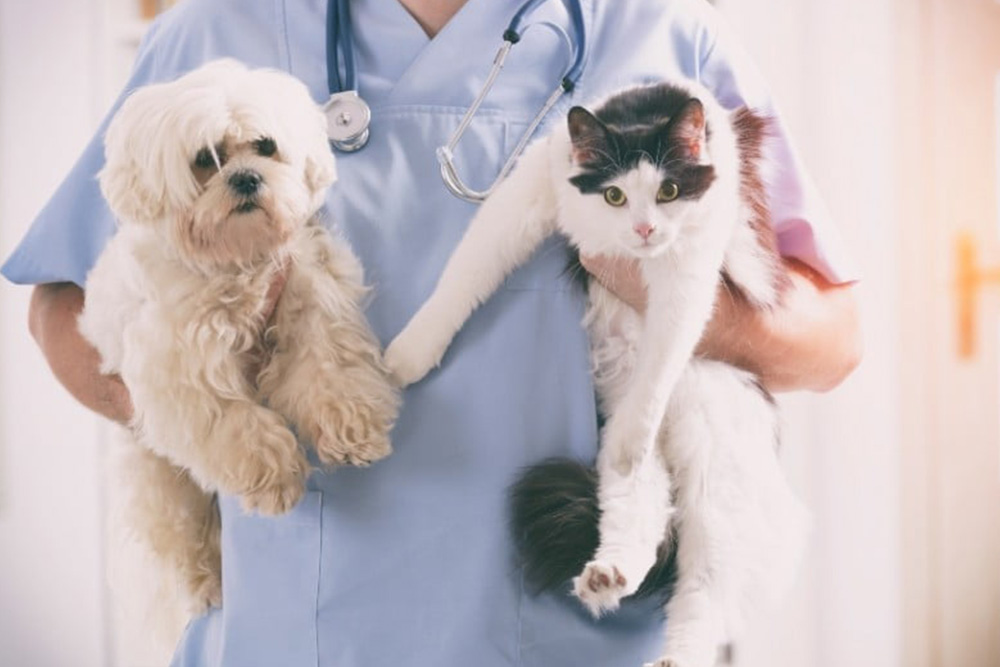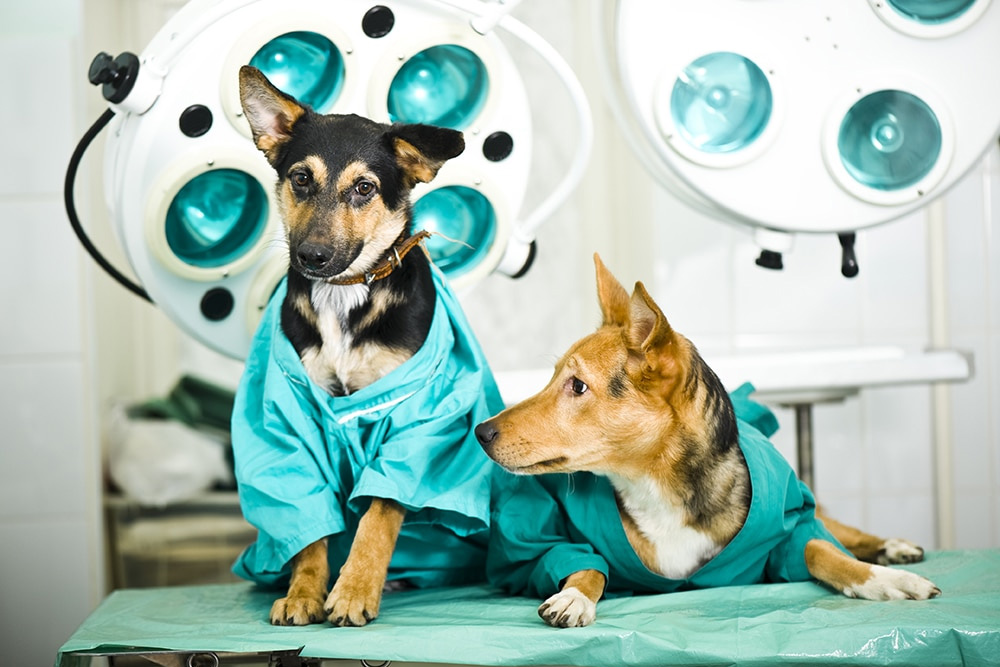Is Your Pet at Risk of These 5 Common Diseases? Here’s How to Protect Them

This article aims to educate pet owners about the common diseases that affect cats and dogs, their risks, and how to prevent them. As a pet owner, it is essential to know the signs and symptoms of common diseases to seek prompt treatment for your furry friend. Understanding the risks associated with these diseases can also help pet owners take the necessary steps to prevent them from occurring.
By reading this article, pet owners will learn about the five most common diseases that affect cats and dogs, their causes, symptoms, and how to prevent them. Knowing how to prevent these diseases can help pet owners ensure their pets live long, healthy lives. Early detection and treatment of diseases can also help prevent the spread of infectious diseases to other pets and even humans.
Related articles
1- How to introduce new foods to your pet’s diet
2- 5 Tips to maintain your pet’s healthy weight
3- Natural foods that can be included in your pet’s
4- The benefits of a natural diet for dogs and cats
Moreover, being knowledgeable about common diseases in pets can also save pet owners a significant amount of money on veterinary bills. By taking proactive steps to prevent diseases, pet owners can avoid costly treatments and surgeries that can result from the neglect of their pets’ health. Overall, this article provides essential information for pet owners to keep their furry friends healthy and happy for years to come.
Common Diseases in Cats:
- Urinary Tract Infections: Urinary tract infections are common in cats, especially in female cats. If left untreated, UTIs can lead to kidney damage, bladder stones, and even death. To prevent UTIs, cat owners should provide their pets with plenty of clean water and ensure their litter boxes are clean.
- Feline Immunodeficiency Virus: Feline Immunodeficiency Virus (FIV) is a viral disease that attacks the immune system of cats. It can lead to severe health problems and even death if left untreated. To prevent FIV, cat owners should keep their pets indoors and away from infected cats.
- Upper Respiratory Infections: Upper respiratory infections are common in cats and can cause sneezing, coughing, and fever. If left untreated, they can lead to pneumonia and other severe respiratory problems. To prevent upper respiratory infections, cat owners should ensure their cats are up-to-date with their vaccinations.
- Dental Diseases: Dental diseases are common in cats and can lead to gum disease, tooth decay, and bad breath. If left untreated, they can lead to tooth loss and other severe health problems. To prevent dental diseases, cat owners should brush their cats’ teeth regularly and provide them with dental chews and toys.
- Feline Leukemia Virus: Feline Leukemia Virus (FeLV) is a viral disease that can weaken a cat’s immune system and lead to various health problems. It can even be fatal in some cases. To prevent FeLV, cat owners should keep their cats indoors and away from infected cats.
Common Diseases in Dogs:
- Obesity: Obesity is a common health problem in dogs and can lead to various health problems, such as diabetes, arthritis, and heart disease. To prevent obesity, dog owners should ensure their pets receive a balanced diet and regular exercise.
- Canine Parvovirus: Canine Parvovirus is a highly contagious viral disease that can cause severe vomiting and diarrhea in dogs. It can be fatal if left untreated. To prevent Canine Parvovirus, dog owners should ensure their dogs are up-to-date with their vaccinations.
- Dental Diseases: Dental diseases are common in dogs and can lead to gum disease, tooth decay, and bad breath. If left untreated, they can lead to tooth loss and other severe health problems. To prevent dental diseases, dog owners should brush their dog’s teeth regularly and provide them with dental chews and toys.
- Heartworm Disease: Heartworm Disease is a potentially deadly illness in dogs that is transmitted by mosquitoes. It can cause severe heart and lung problems if left untreated. To prevent heartworm disease, dog owners should have their pets on a regular preventative medication.
- Kennel Cough: Kennel cough is a highly contagious respiratory disease in dogs that can cause coughing, sneezing, and fever. It can lead to more severe respiratory problems if left untreated. To prevent kennel cough, dog owners should ensure their dogs are up-to-date with their vaccinations and avoid exposing them to infected dogs.
In conclusion, by being aware of the common diseases in cats and dogs, their risks, and ways to prevent them, pet owners can help ensure their furry friends lead healthy and happy lives. Regular veterinary check-ups, proper nutrition, exercise, vaccinations, and good hygiene practices are key to preventing these diseases and keeping
Prevention of Common Diseases in Cats and Dogs:
Prevention of Urinary Tract Infections in Cats:
To prevent urinary tract infections in cats, cat owners should provide their pets with plenty of clean water, feed them a balanced diet, and ensure their litter boxes are clean. Also, spaying or neutering your cat can reduce the risk of urinary tract infections.
Prevention of Feline Immunodeficiency Virus:
To prevent Feline Immunodeficiency Virus (FIV), cat owners should keep their cats indoors and away from infected cats. Additionally, regular veterinary check-ups and vaccinations can help detect and prevent the spread of FIV.
Prevention of Upper Respiratory Infections in Cats:
To prevent upper respiratory infections in cats, cat owners should ensure their cats are up-to-date with their vaccinations and keep them away from infected cats. Also, regular veterinary check-ups and prompt treatment of any respiratory symptoms can prevent the infection from spreading.
Prevention of Dental Diseases in Cats:
To prevent dental diseases in cats, cat owners should brush their cats’ teeth regularly and provide them with dental chews and toys. Additionally, feeding your cat a balanced diet and regular veterinary check-ups can help prevent dental diseases.
Prevention of Feline Leukemia Virus:
To prevent Feline Leukemia Virus (FeLV), cat owners should keep their cats indoors and away from infected cats. Regular veterinary check-ups and vaccinations can also help detect and prevent the spread of FeLV.
Prevention of Obesity in Dogs:
To prevent obesity in dogs, dog owners should provide their pets with a balanced diet and regular exercise. Avoid feeding your dog table scraps and high-calorie treats, and consider feeding them smaller, more frequent meals.
Prevention of Canine Parvovirus:
To prevent Canine Parvovirus, dog owners should ensure their dogs are up-to-date with their vaccinations. Additionally, avoid exposing your dog to infected dogs or contaminated environments.
Prevention of Dental Diseases in Dogs:
To prevent dental diseases in dogs, dog owners should brush their dog’s teeth regularly and provide them with dental chews and toys. Regular veterinary check-ups and professional dental cleanings can also help prevent dental diseases.
Prevention of Heartworm Disease in Dogs:
To prevent heartworm disease in dogs, dog owners should have their pets on a regular preventative medication. Additionally, avoid exposing your dog to mosquitoes by using insect repellent and keeping them indoors during peak mosquito activity.
Prevention of Kennel Cough in Dogs:
To prevent kennel cough, dog owners should ensure their dogs are up-to-date with their vaccinations and avoid exposing them to infected dogs. Additionally, good hygiene practices, such as regular hand washing and cleaning of shared objects, can help prevent the spread of kennel cough.
In conclusion, knowing the common diseases that affect cats and dogs, their risks, and how to prevent them is essential for every pet owner. By being informed about the signs and symptoms of these diseases, pet owners can seek prompt treatment for their pets, which can ultimately save their lives. Additionally, by taking preventive measures, pet owners can avoid costly veterinary bills and ensure that their pets lead healthy, happy lives.
Remember to take your pets to regular veterinary check-ups, maintain their vaccinations up to date, and provide them with a balanced diet and plenty of exercise. It is also essential to keep their living spaces clean and hygienic to prevent the spread of infectious diseases. By following these simple guidelines, pet owners can reduce the risk of their pets contracting common diseases and keep them healthy and happy for many years to come.
Sobre o Autor




0 Comentários